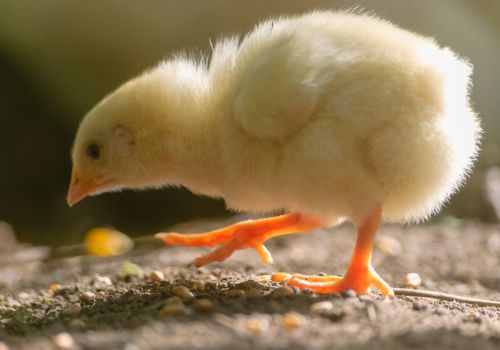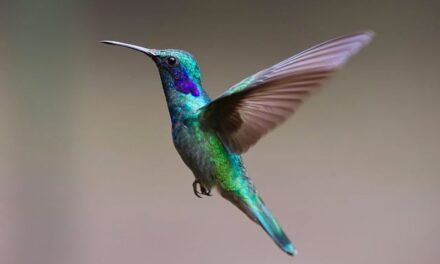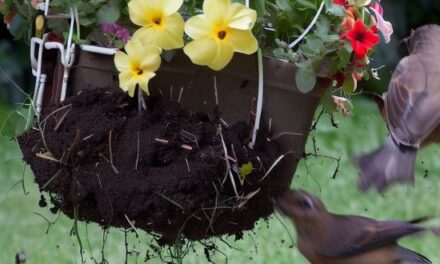Why do birds eat their kids’s poop? In the fascinating realm of avian behavior, an intriguing phenomenon has bewildered researchers and nature enthusiasts alike This peculiar behavior, observed across various bird species, sparks curiosity and invites us to delve into the underlying reasons behind such seemingly unorthodox dietary habits. While it may appear repulsive to humans, understanding why birds partake in this unconventional act sheds light on the intricate dynamics of parental care and survival strategies within the avian world.
The Behavior of Birds Eating Their Kids’ Poop
Birds eating their offspring’s feces may seem like an unusual behavior to many observers, but it is a relatively common occurrence in the avian world. This article aims to explore the observation, variation, frequency, possible reasons, and benefits of this behavior.
Observation of the Behavior
The behavior of birds consuming their chicks’ excrement has been extensively studied in the scientific community. These studies have utilized various research approaches, ranging from experimental evidence to theoretical frameworks and comparative studies. Additionally, field observations have played a crucial role in understanding the intricacies of this behavior.
Scientific Studies
Scientific studies have provided valuable insights into the phenomenon of birds eating their youngsters’ droppings. Researchers have employed experimental setups to analyze the behavioral responses of different bird species. These experiments involved the introduction of fecal sacs to observe how birds reacted, both individually and within their social groups.
Field Observations
Field observations are instrumental in capturing the natural behavior of birds. Scientists have employed techniques such as remote cameras, direct observations, and data collection methods like video recording and note-taking to document instances of this behavior in various bird species and ecological settings. These field observations have proven invaluable in deciphering the context and frequency of this behavior.
Parental Care
Birds exhibit remarkable parental care, and the consumption of their offspring’s feces is one intriguing aspect of this phenomenon. Nest building and maintenance, feeding the young, incubation, and dealing with brood parasites all contribute to ensuring the survival and well-being of the avian offspring. The behavior of eating fecal sacs falls under the umbrella of parental care and nourishing strategies.
Nourishing Strategy
The consumption of fecal sacs by birds can be understood within the broader context of nourishing strategies. Birds have developed various methods to provide their young with essential nutrients and promote their growth. These strategies include regurgitation, crop milk production, food regurgitation, and the ingestion of fecal sacs. Each of these methods contributes to the transfer of vital nutrients from the parent to the offspring.

Variation in Species
The behavior of birds eating their chicks’ feces is not uniform throughout the avian world. It varies across different bird families, nesting habits, and ecological factors. Understanding these variations provides a more comprehensive perspective on the behavior in question.
Different Bird Families
Birds from diverse families exhibit this behavior, including but not limited to raptors, passerines, waterbirds, and seabirds. The presence of this behavior across different families suggests that there may be evolutionary advantages or shared characteristics among these species that contribute to its occurrence.
Nesting Habits
The nesting habits of birds also play a role in determining the prevalence of this behavior. Birds that build cup-shaped nests or utilize cavities are more likely to eat their chicks’ feces due to the confined and enclosed environment. This behavior may be influenced by factors such as nest cleanliness and disease prevention.
Ecological Factors
The ecological factors within a bird’s habitat can also influence the occurrence of this behavior. In environments where food resources are scarce or unpredictable, birds may resort to consuming feces as a means of efficient resource utilization. Additionally, the presence of predators or parasites may further drive birds to engage in this behavior as a means of reducing the risk of predation or infection.
Frequency of the Behavior
The frequency of birds eating their offspring’s feces can vary among different species and within specific populations. Some observations suggest common instances of this behavior, while others report uncommon cases. Several factors contribute to the frequency and occurrence of this behavior.
Common Occurrences
In certain bird species, such as certain raptors and passerines, the consumption of fecal sacs is a regular part of their parental care routine. These birds have evolved to exhibit this behavior as a natural and essential aspect of raising their young. The frequency of this behavior is influenced by factors like the availability of food resources, nest hygiene, and predator pressure.
Uncommon Cases
While the consumption of fecal sacs may be more prevalent in some bird species, there are also instances where this behavior is relatively rare or absent altogether. These cases could be attributed to various factors, including different ecological adaptations, alternative nourishing strategies, or the absence of specific environmental stimuli that trigger this behavior.
Factors Affecting Frequency
Several factors can influence the frequency of birds eating their chicks’ feces. The availability of alternative feeding options may reduce the need for this behavior in certain environments. Additionally, the level of nest hygiene, predator pressure, and the presence of diseases or parasites can all impact the frequency of this behavior.

Possible Reasons
While the behavior of birds eating their offspring’s feces might seem peculiar, it serves several essential purposes. Various reasons have been proposed to explain the occurrence and persistence of this behavior across different bird species.
Hygiene Aids Nest Survival
One possible reason for birds consuming fecal sacs is to maintain nest hygiene. By removing fecal matter from the nest, parents reduce the risk of bacterial growth, odor, and disease transmission. This behavior acts as a mechanism to enhance nest survival and ensure a clean and safe environment for the growing chicks.
Disease Prevention
The consumption of fecal sacs by adult birds can contribute to disease prevention among their offspring. Feces contain potentially harmful microorganisms, which, if not removed promptly, can pose a risk to the chicks’ health. By ingesting fecal sacs, parents prevent the proliferation of pathogens and help maintain the overall well-being of their young.
Nutrient Recycling
Birds have evolved efficient mechanisms to recycle resources within their ecosystems. The consumption of fecal sacs allows parents to retrieve undigested nutrients, such as proteins and trace minerals, that may still be present in the feces. By recycling these nutrients, birds maximize their own energy expenditure while ensuring the optimal growth and development of their chicks.
Predator Deterrence
The presence of fecal sacs in the nest can act as a deterrent to potential predators. The strong odor and visual cue of feces may signal to predators that the nest is occupied and reduce the likelihood of an attack. By promptly removing fecal sacs from the nest, birds minimize the risk of attracting predators and increase the chances of their offspring’s survival.
Behavioral Conditioning
The consumption of fecal sacs may also serve as a form of behavioral conditioning. By rewarding their offspring for eliminating waste in the form of fecal sacs, parents reinforce good hygiene habits. This conditioning can contribute to the chicks’ ability to manage their waste effectively as they grow and develop.
Environmental Adaptation
The behavior of birds eating their offspring’s feces can also be seen as a remarkable adaptation to their specific environmental conditions. In certain habitats where food resources are scarce and unpredictable, the ability to extract as many nutrients as possible from available sources becomes crucial for survival. Consuming fecal sacs offers a means of extracting additional nutrients that would otherwise be wasted.
Benefits of the Behavior
The behavior of birds eating their chicks’ feces offers several benefits, both for the avian parents and their offspring. These advantages encompass enhanced nest hygiene, improved nest survival rate, boosted offspring immune system, efficient resource utilization, minimized predation risk, and influence on parent-offspring interactions.
Enhanced Nest Hygiene
By promptly removing and consuming fecal sacs, birds improve the hygiene and cleanliness of their nest. This reduces the risk of bacterial growth, foul odors, and disease transmission, creating a more suitable environment for the nestlings.
Improved Nest Survival Rate
The consumption of fecal sacs has been linked to higher nest survival rates in certain bird species. By removing potential attractants for predators and reducing the risk of disease transmission, parents increase the chances of their offspring’s survival during the critical nestling period.
Boosted Offspring Immune System
The consumption of fecal sacs can contribute to the development of a robust immune system in the growing chicks. By removing potentially harmful microorganisms, parents reduce the chicks’ exposure to pathogens, allowing their immune systems to mature and strengthen.
Efficient Resource Utilization
Through the ingestion of fecal sacs, adult birds efficiently recycle undigested nutrients present in their offspring’s waste. This strategy optimizes resource utilization and ensures that essential elements for growth and development are not wasted.
Minimized Predation Risk
The presence of fecal sacs in the nest could act as a deterrent to potential predators. By promptly removing these sacs, birds minimize the risk of attracting predators to their nest, thereby reducing the threat of predation to their offspring.
Influence on Parent-offspring Interactions
The behavior of consuming fecal sacs can have a profound influence on the interactions between parents and offspring. It acts as a form of reciprocal care, where parents attend to their young’s waste elimination needs. This behavior fosters bonding, communication, and reinforces the parent-offspring relationship.
Conclusion
the behavior of birds eating their kids’ poop, though initially puzzling, serves essential purposes in their survival and reproductive strategies. Through enhanced nest hygiene, disease prevention, nutrient recycling, predator deterrence, behavioral conditioning, and environmental adaptation, this behavior ensures the well-being and successful development of avian offspring. By understanding and appreciating this behavior, we gain valuable insights into the intricate world of avian parenting strategies and the remarkable adaptations that birds possess.





